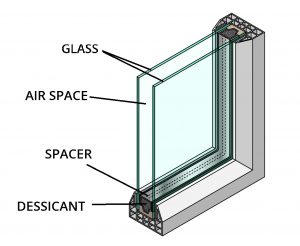All Categories
Featured
Table of Contents
How To Retrofit Your Windows With Double Glazing, And Keep ... in Yanchep Western Australia
That window can transfer more solar heat in winter than in summer season. A west-facing window on a summertime's afternoon has an angle of occurrence from near 0 as much as 30 with a big effective area of solar radiation. A north-facing window, in summer, has a high angle of incidence and a low efficient location of solar radiation, so can send less heat than a west-facing one.

You can rapidly and quickly improve the thermal performance of your home by changing your windows. There are thousands of types of glass and frames to choose from.
Why Should You Have Double-glazed Windows This Summer? in North Perth Perth
There are lots of various kinds of glass items to pick from. Single glazing utilizes a single pane of glass. Single glazing with clear glass is not extremely effective when it comes to heat loss or gain. To improve performance, you can use single glazing with a more energy-efficient type of glass such as low emissivity (low-e) glass.
The energy performance of IGUs also depends on: the homes of each layer of glass. Different glass types (for example, clear and low-e glass) can be put together in an IGU.
Double Glazing - Windows - Doors in Parkwood Perth

IGU cavities can be filled with air or a more inert, low-conductivity gas such as argon the width of the cavity. Wider cavities supply lower (much better) U worths, with 12mm usually accepted as the favored gap how well the cavity is sealed.
If argon is set up to the cavity in place of air, wetness is dependably excluded the level of desiccant (drying representative). The spacer (metal or polymer strip) that separates the glass layers consists of a desiccant to soak up any wetness. Insufficient desiccant may trigger moisture to condense on the glass surface area in cold conditions, lowering thermal performance.
Sustainability in Coogee Perth
IGUs can provide better energy efficiency for all climates, especially in heated and air-conditioned houses. Cross-section information of single, double and triple-glazing systems Low emissivity glass (frequently called low-e glass) reduces heat transfer. Low-e glass might be either high or low transmission: High transmission low-e glass has a finish that permits daytime from the sun to enter your home to attain great solar heat gain, but minimizes the quantity of the long wavelength infrared heat that can leave back through the window.
Low-e glass has either a pyrolytic finish or a vacuum-deposited thin movie metal covering. Pyrolytic finishings are long lasting and can be used for any glazing; vacuum-deposited coverings are soft and are just used within IGUs. Low-e coatings can substantially improve both U value and SHGC; however, they must be used correctly or they will either weaken or fail to carry out as needed.
Glass Selector - Custom Single & Double Glazed ... in Kalamunda Perth
Low-e coverings can be used in combination with clear, toned or reflective glass. Low-e finishes on glazing can decrease heat transfer where required Picture: Department of Industry, Science, Energy and Resources Toned glass has actually colouring additives consisted of throughout manufacture. It is available in various colours, usually bronze, grey, blue and green.
Table of Contents
Latest Posts
Benefits Of Double Glazing Low-e in Applecross Western Australia
Double Glazing Windows - Prices And Installers Near You in East Fremantle Perth
Triple Glazing & Triple Glazed Windows - Hampshire in Innaloo WA
More
Latest Posts
Benefits Of Double Glazing Low-e in Applecross Western Australia
Double Glazing Windows - Prices And Installers Near You in East Fremantle Perth
Triple Glazing & Triple Glazed Windows - Hampshire in Innaloo WA